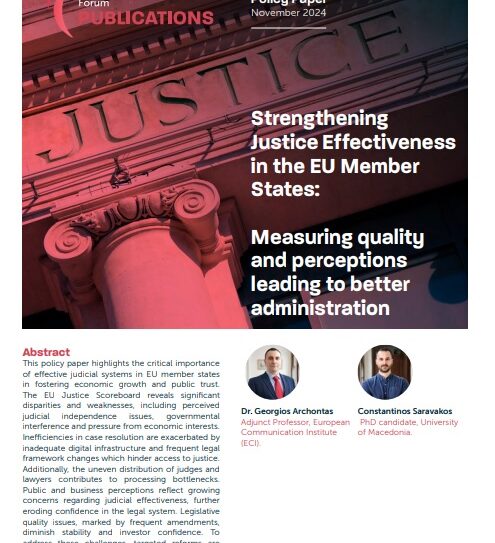Strengthening Justice Effectiveness in the EU Member States – Measuring quality and perceptions leading to better administration
The EU Justice Scoreboard, however, reveals significant disparities and weaknesses, including perceived judicial independence issues, governmental interference and pressure from economic interests. Inefficiencies in case resolution are exacerbated by inadequate digital infrastructure and frequent legal framework changes, which hinder access to justice.
